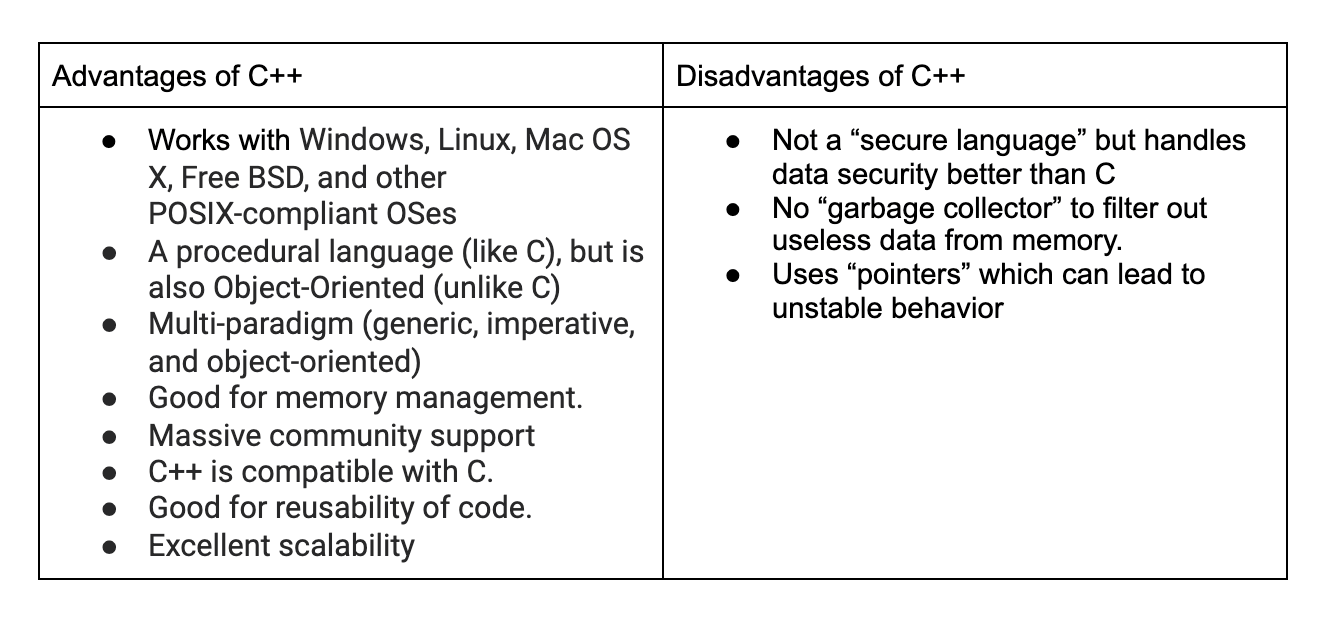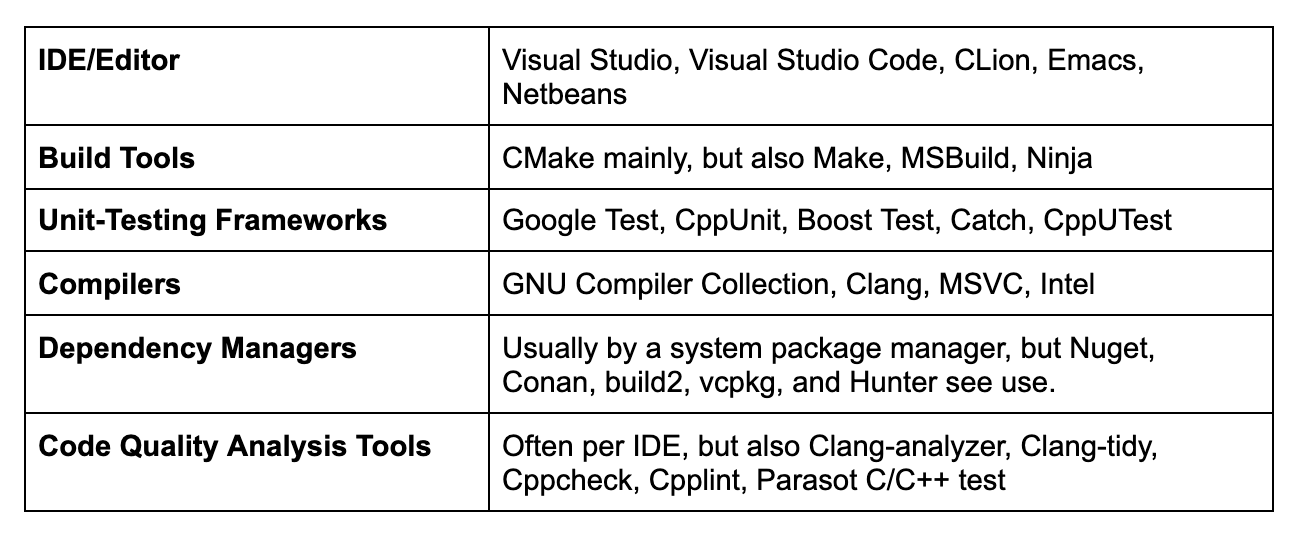There’s a striking difference between C++ and Python developers. For one, the vast majority of Python developers work for companies with fewer than 100 employees. This is completely reversed for C++ developers, with most working for large SMBs and Enterprises. Moreover, C++ developers tend to have significantly more years of experience than the average Python developer. Even so, Python is the most popular second language of C++ developers.
The following statistics are drawn primarily from the Standard C++ Foundation’s third annual, global C++ developer survey with 1,034 participants. You can download it for free from their site – isocpp.org. Beyond these statistics, it goes into a variety of issues faced by C++ developers
C++ developers tend to work for very large companies (SMB-enterprise):
- About 75% of C++ developers work in companies with 1,000 or more employees.
- Only 5% work for startups and small businesses with fewer than 100 employees.
C++ developers tend to have a high level of experience:
- 23% have worked with C++ for 20+ years
- 30% have used C++ for 10-20 years
- 22% have 6-10 years of experience with C++
Most C++ developers work with Windows/Unix/Linux systems:
- Windows Desktop – 69%
- Linux Desktop – 58%
- Linux Server – 49%
- Embedded Systems – 31%
- Windows Server – 21%
- Android – 18%
- iOS – 11%
Other commonly known languages used by C++ developers:
- Python – 65%
- C – 50%
- JavaScript – 31%
- C# – 29%
- SQL – 24%
- Java – 22%
These statistics indicate that small businesses and startups should think twice before adopting C++ for their project – though there are cases where it may be your best option. It’s paramount that you talk with an experienced software architect to determine your software’s requirements.
This is certainly the case if you are developing for Windows, Unix, and Linux-based systems. If you need to develop for the .NET framework, you might want to look for C# developers.




